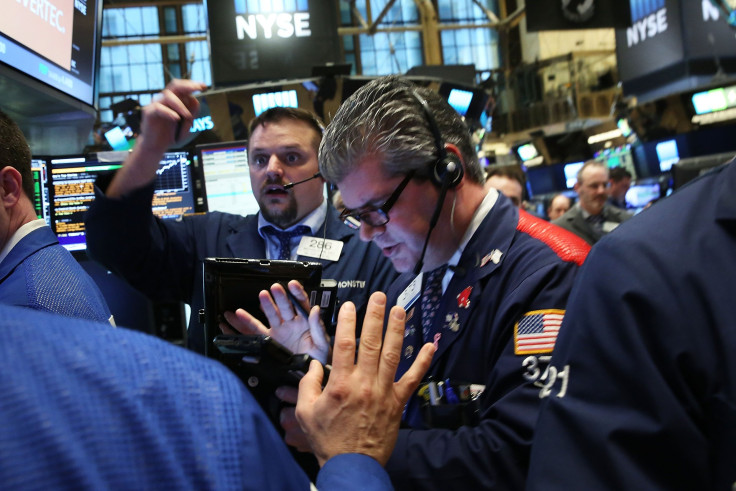Friday's Stock Market Close: US Equities Soar More Than 9% On National Emergency Declaration

KEY POINTS
- The Dow eased this week's precipitous slide but was still off nearly 2,000 points from Monday's levels
- Ford, Bank of America and General Electric led the most actives
- Delta said it had asked the White House and Congress for help in dealing with losses triggered by the coronavirus outbreak
U.S. markets soared in late day trading Friday as President Trump declared a national emergency and announced he has instructed the secretary of energy to buy large quantities of oil to fill the strategic reserve “right to the top.”
At the close, the Dow Jones Industrial Average was up 1,985 to 23,186, nearly recouping Thursday’s more than 2,300-point loss. The S&P 500 gained 228 to 2,709 and the Nasdaq Composite was up 672 to 7,874. All three indexes were up more than 9% on the day. For the week, the Dow was off nearly 2,000 points.
More than 6 billion shares changed hands on the New York Stock Exchange with advances leading declines 2,392 to 624. Two reached new highs and 639 reached new lows. Most actives included Ford Motor Co. (F), Bank of America (BAC) and General Electric (GE).
Though stocks were in the green the entire day, the runup began as Trump held a news conference announcing a national emergency, which opened up $40 billion to be used to help states and cities cope with the coronavirus outbreak.
"I am declaring a national emergency," Trump said. He also announced the availability of new testing kits and plans for drive-by testing. In the meantime, House Democrats and the White House were putting the finishing touches on emergency legislation to deal with the crisis, providing relief for workers and businesses impacted by the outbreak.
Delta Airlines (DAL) said it asked the White House and Congress on aid to curb losses as it cut 40% of its schedule and sidelined 300 aircraft.
Earlier in the day, Trump again tried to pressure the Federal Reserve into cutting interest. The Federal Open Markets Committee meets next week to consider cutting its key federal funds rate from its current 1% to 1.25%. The Fed earlier this month dropped the rate 50 basis points but Trump is still pushing to negative interest rates, something Chairman Jerome Powell is resisting.
The Fed Friday said it would accelerate planned Treasury securities purchases and bought more than $30 billion in bonds Friday to try to shore up the market. A few days ago it injected $1.5 trillion in short-term funding but banks only snapped up about 10% of the total.
The People’s Bank of China cut reserve requirements, and the Bank of Japan said it would buy bonds worth 200 billion yen ($1.9 billion). The Reserve Bank of Australia pushed the biggest cash dump in seven years into funding markets, and the European Central Bank indicated it could shorten bond spreads and cut interest rates further.
On Asian markets, Hong Kong’s Hang Seng closed off 1.14% while Japan’s Nikkei dropped 6.08% and China’s Shanghai fell 1.25%. Australia’s S&P/ASX gained 4.42%.
European markets closed higher. The London FTSE 100 gained 2.46% while the German DAX edged up 0.77% and the French CAC 40 climbed 1.83%. The Stoxx Europe 600 was up 1.43%.
Crude oil futures rose 4.76% to $33 a barrel while Brent crude gained 3.16% to $34.92. Gold was lost 4.19% to $1,523.60 an ounce.
The U.S. 10-year Treasury lost 20/32 for a yield of 0.997% while the 30-year not lost 3 30/32 for a 1.5% yield.
© Copyright IBTimes 2024. All rights reserved.





















